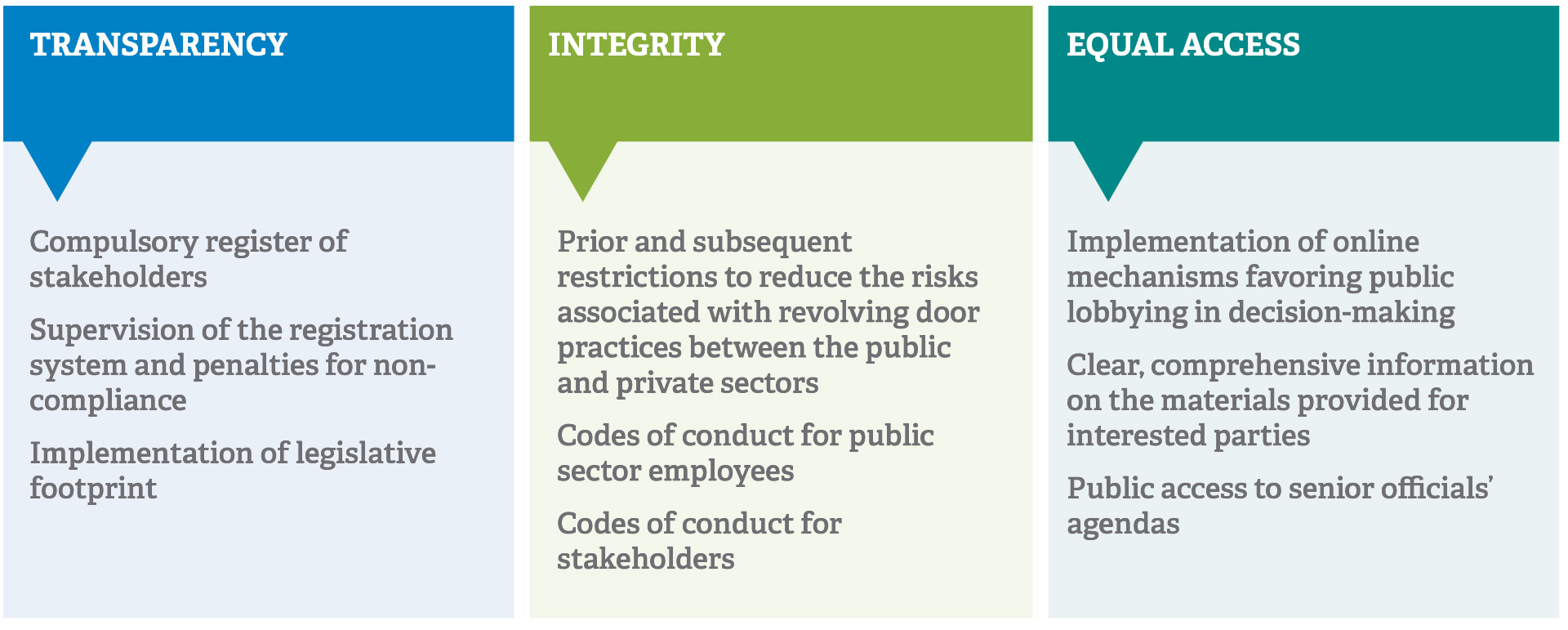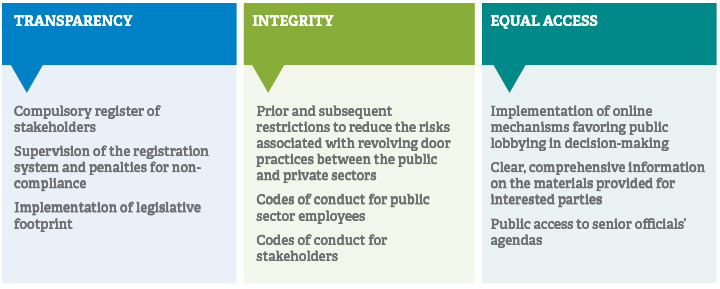-
TrendsEuropean AffairsSustainability / ESG
-
SectorOthers
-
CountriesGlobalSpain
In the globalization and digitization era, the legislator faces an unprecedented technical complexity. Decision-making in politics is closely connected with lobbying—by civil society, companies and nongovernmental organizations— which exercise certain influence in legislative processes.
Organizations such as Transparency International and the Organization for Economic Cooperation & Development (OECD) uphold guiding principles in public decision-making, requiring all interested parties have equal access to information and the public decision-making processes, promoting:
- More open lobbying models online, via e-mail and through digital platforms.
- Reasonable time allowed for interested parties to become familiar with the process for contributing their opinions and presenting them with adequate standards of quality and specification.
- Clear, comprehensive information on the materials offered to interested parties to ensure they are readily understandable
- Transparency and accountability to know who participated in the decision-making process and what procedure was followed to consider the contributions submitted.
- Guarantee a legal framework that regulates lobbying in decision making.
It is also advisable to regulate transparency in lobbying by the different stakeholders who participate in public decision-making processes. According to Foro por la Transparencia, a Spain-based organization bringing together several of the leading law firms and consultancies, which works to promote specific regulation of stakeholders, we need:
- Public administrations to create compulsory stakeholder registers.
- The publication of a Code of Conduct to guide the actions of lobbyists and penalize any breach of the Code.
- Public access to the agendas of senior officials and freely designated staff, identifying the reasons for meetings and the principal documents exchanged, as far as possible within the confines of trade secrecy and personal data protection.
- Institute the “legislative footprint” processes, publicizing meetings and reports used by MPs and officials in legislative processes.
The mere approval of rules does not guarantee their correct implementation and application. They need to be backed up with a system of penalties and sufficient human resources to enforce compliance. All key actors, particularly politicians, civil servants, lobbyists, civil society and independent watchdogs should be involved both in establishing rules and standards to guide their activity and putting them into effect.
Guiding principles for regulating lobbying in public decision-making


Raising the transparency standards in public decision-making is essential to favor models of governance that allow the inclusion of several points of view and solutions in the legislative processes. They also contribute toward:
- Establishing an early alert system enabling legislators to detect public concerns from civil society and the private sector.
- Handling social conflicts by bringing different interested parties and stakeholders together around one table.
- Designing fairer laws and implementing fairer policies, reflecting the diversity of interests.
- Making sure proposed policies are legitimate, and implementation is responsible and appropriate.
In sum, the way to move toward standards favoring lobbying by citizens, companies and nongovernmental organizations in legislative processes (thereby contributing toward a greater protection of public interests) is by enhancing transparency, integrity and impartiality.
Authors
Manuela Sanchez




